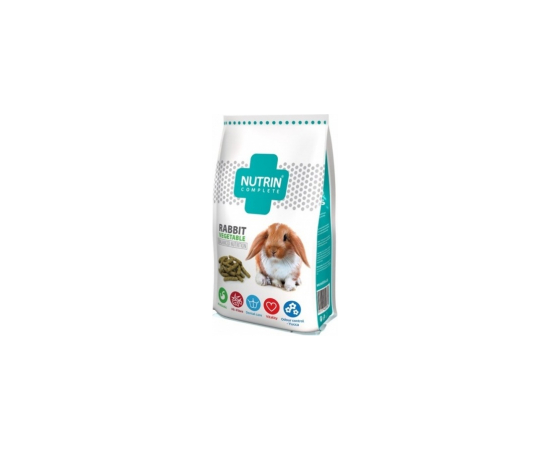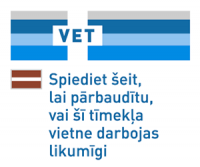NUTRIN Complete - Rabbit Vegetable 1500gr - PILNVĒRTĪGA EKSTRUDES BARĪBA AR DĀRZEŅIEM TRUŠIEM NO 8 MĒNEŠU VECUMA
| NUTRIN COMPLETE RABBIT VEGETABLE Pilnvērt.ekstrud. barība ar dārzeņiem trušiem no 8 mēn.vecuma. Sastāvs: lucernas sēklas, kvieši, lignocelulozes šķiedra, kukurūza, auzu šķiedra, raugs, zirņu proteīns, pētersīļi, jaunie burkāni, pastinaks, ābolu šķiedra, saulespuķu eļļa, kalcija monofosfāts, izspiest. vīnogas, sarkan.cukurs, nātrija hlorīds , spināti, saulespuķu sēklu mizas, āboli, FOS-cigoriņu inulīns 2g/kg, kalcija karbonāts, Yucca Shidiger 1g/kg. Sastāvdaļu % daudz.: kopproteīns 14%, koptauki 3%, kopšķiedra 20%, koppelni 6%, Ca 0,8%, P 0,5%. Piedevas uz 1kg: Uzturfiziol.: A vitam.(3a672a) 10 000 SV, D3 vitam.(3a671) 1200 SV, C vitam. (3a300) 200mg, E vitam.(3a700) 50mg, holīna hlorīds 200mg, niacinamīds 35mg, B5 vitam.25mg, B2 vitam.15mg, B1 vitam. 12 mg, B6 vitam.8mg, K3 vitam.0,6mg, Biotīns 0,2mg, B12 vitam.0,03mg. Mikroelem.: Fe (3b106) 80mg, Mn (3b506) 60mg, Zn (3b607) 60mg, Cu (3b406) 10mg, I (3b202) 1mg, Co (3b305) 1mg, Se (3b8.11). 0,3mg Aminoskāb.: L-lizīns (3.2.3.) 3g, DL-metionīns (3c301)2g. Emulgatori: lecitīns (E 322) 5g; Antioksid.: rozmarīna ekstr. un dabīgie tokoferoli. Dienas deva: lietot no 8 mēn.vec. Pāreja no barīb. jauniem trušiem notikt pakāpeniski, no 7mēn.vec., pievienojot junioru barībai pieuguš. barību. Glabāt: sausā, vēsā vietā. |
Ziņojumu nav


